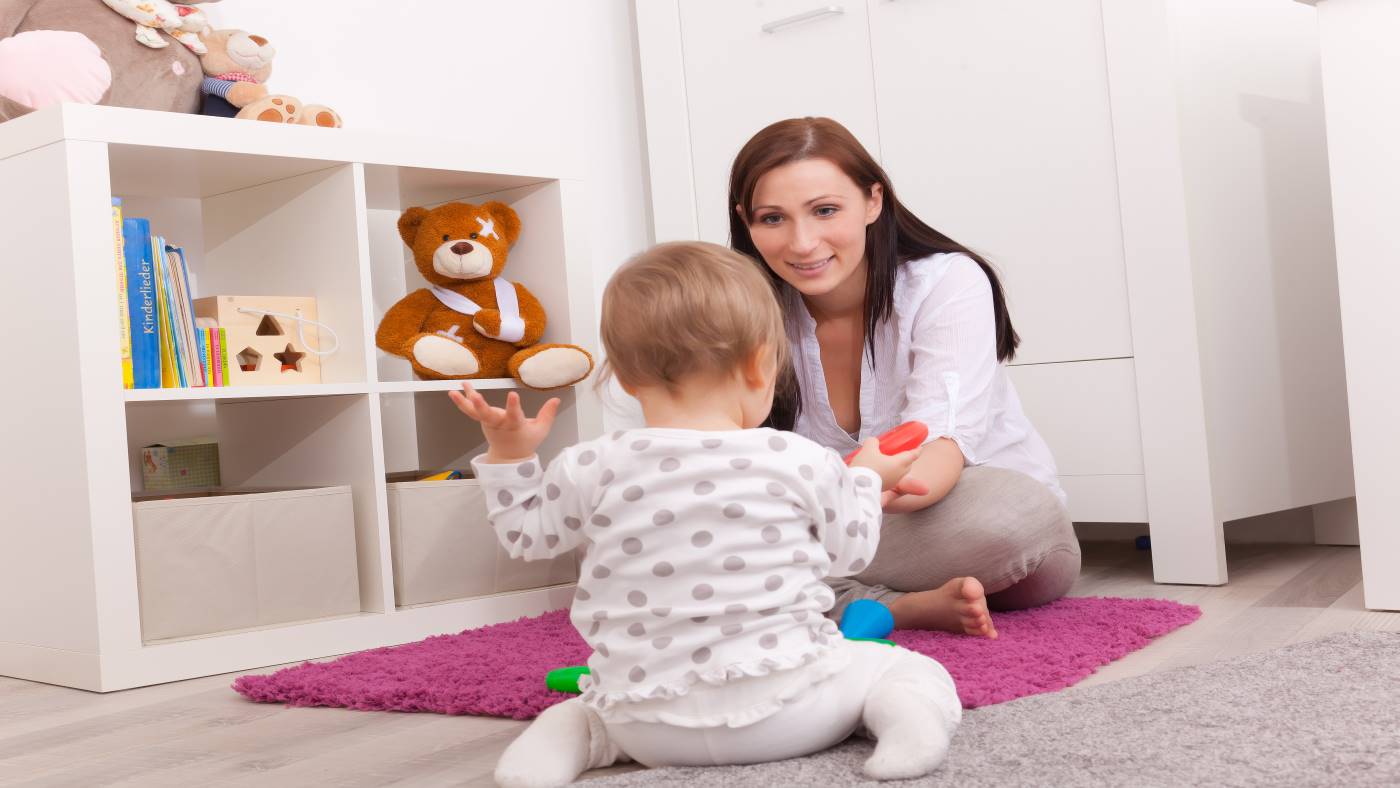How you have boosted your baby’s language skills

Since birth, your baby has been absorbing language and information; their active, inquisitive mind has created millions of connections between words and their environment.[1] You’ve played a pivotal role in your baby’s ability to understand words, and now they are starting to follow simple instructions. Read on to see how you have helped them so far and what you can continue to do.
Relationships and understanding
Your baby relies on language to form a loving relationship with you. You have already supported their development massively by responding to their emotions, having conversations with them and narrating your day.[1] All these wonderful moments, filled with expressive language and gestures, have helped build a solid foundation for your baby to rapidly gain an understanding of what is being said.
Keep on doing what you are doing. Your baby’s brain will continue to make connections between your relationship and social interactions, which will support their growing understanding of language and how it works.
Expressive language, gestures and praise
Up until now, your baby has been processing language and reading clues from your body language and intonation. They are now gradually linking their understanding of language and are becoming able to follow instructions.
You may notice that your baby responds well to intonation in speech, and when combined with gestures, they find it easier to follow what is being said. This will help them to understand patterns in language, read body language and gestures and make sense of familiar things that are being asked of them.[2]
Keep the encouragement coming!
You might have waved your hand at them or patted the ground to encourage them to join you. You most likely smiled and encouraged them if they approached you or made a little move in your direction. Babies love praise and when they receive it, it encourages them to be attentive to what you say.
So, keep on praising all their understanding. Praising is brilliant as your baby already loves spending time with you, and it is fun for both of you when they tune in and understand more of what you say.
References:
[1] Committee on the Science of Children Birth to Age 8. (2015) Transforming the Workforce for Children Birth Through Age 8: A Unifying Foundation. Institute of Medicine; National Research Council. Washington (DC): National Academies Press (US); 2015 Jul 23. 4, Child Development and Early Learning. Available from: https://www.ncbi.nlm.nih.gov/books/NBK310550/
[2] Aktan Erciyes, A. (2021). Understanding language acquisition: Neural theory of language. Journal of Language and Linguistic Studies. 17. 697-705. 10.52462/jlls.48.]